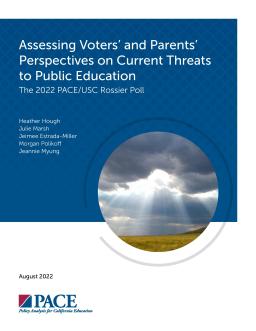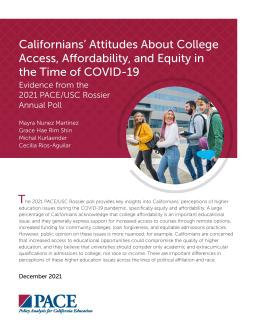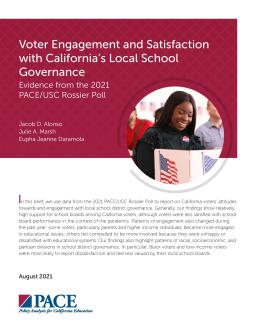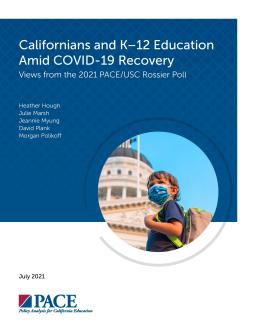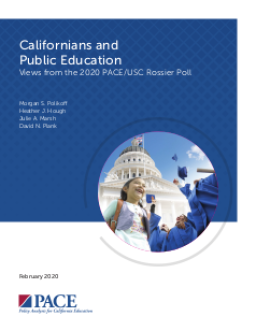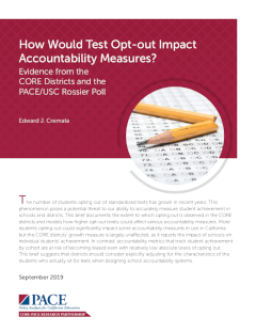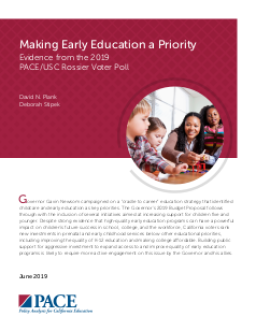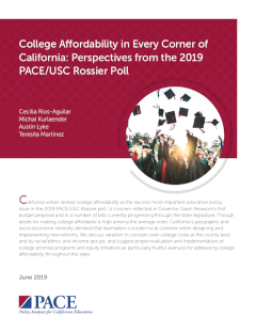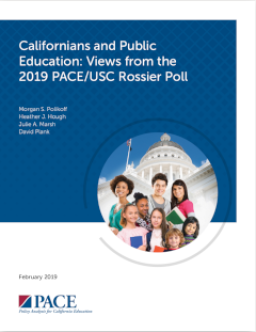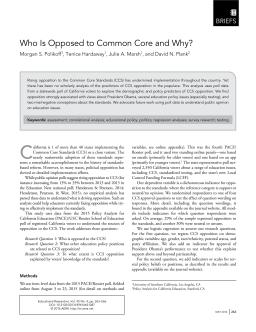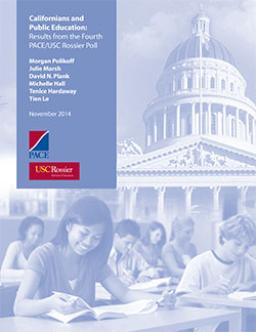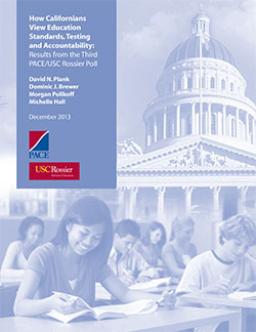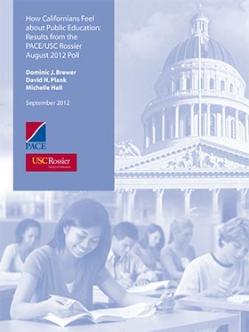Summary
The 2021-22 academic year in California was challenging for public education due to eight issues that threaten student learning, schools, and public education itself, including gun violence, declining enrollment, and long-term funding inadequacy. These issues also have a disproportionate impact on marginalized communities and highlight long-standing systemic inequities. In July 2022, PACE and USC Rossier School of Education conducted a poll of California voters to determine their views and priorities on public education.
Summary
Summary
Summary
Summary
Summary
We use data from the 2020 PACE/USC Rossier annual voter poll to report on California voters’ attitudes towards educational equity policy initiatives, specifically: (a) increasing the number of public school teachers of color in California and (b) requiring all high school students in California to complete an ethnic studies course. A majority of voters supported these initiatives. Respondents showed higher levels of support for increasing the number of teachers of color when informed about the positive academic impact this would likely have for students of color. Support varied depending on...
Summary
In the run-up to 2020 elections, where do California voters stand on key education policy issues? This report examines findings and trends from the 2020 PACE/USC Rossier poll. Key findings include rising pessimism about California education and elected officials, continued concern about gun violence in schools and college affordability, and negative opinions about higher education. However, there is substantial support for increased spending, especially on teacher salaries.
Summary
The increase in students opting out of standardized tests is a threat to accurately measuring student achievement. This brief examines the effects of opting out in the CORE districts and models how it could affect accountability measures. More opt-outs could significantly impact some metrics, but the growth measure is largely unaffected. Metrics tracking achievement by cohort are at risk of bias, even with low levels of opting out. Adjusting for characteristics of students who take the tests could be a solution.
Summary
Governor Newsom has proposed initiatives to support children under 5, but California voters prioritize K-12 education and college affordability over early education. Despite evidence that high-quality early education has a powerful impact on children’s future success, more active engagement by the Governor and his allies may be necessary to build public support for expanding access and improving the quality of early education programs.
Summary
College affordability was ranked as the second most important education policy issue in the 2019 PACE/USC Rossier poll. Governor Newsom’s budget proposal and several bills in the state legislature reflect this concern. The diverse geography and socioeconomic status in CA demand local context consideration for designing effective reforms. Variation in concern over college costs is discussed by county and income and racial/ethnic groups. Proper evaluation and implementation of college promise programs and equity initiatives are suggested as fruitful avenues for addressing college affordability.
Summary
This report updates previous research on California's Local Control Funding Formula (LCFF) using a 2019 poll of California voters. Despite increased awareness, over half of voters are unfamiliar with LCFF. Support for the policy remains high but has decreased. Participation in LCFF engagement has increased but remains low, particularly among low-income voters. Low-income communities may not be meaningfully engaged in LCFF decision-making.
Summary
This brief analyzes the 2018 update of the California School Dashboard, examining improvements and areas for continued enhancement. Using data from the 2019 PACE/USC Rossier poll, the author characterizes use of and support for the Dashboard, finding low use, equity gaps, but high support and preference for the new Dashboard.
Summary
Summary
Summary
CA is undergoing significant changes in its education system. The Local Control Funding Formula (LCFF) has decentralized authority and responsibility, with the Local Control Accountability Plan (LCAP) focusing on local strategies for improvement. Common Core State Standards (CCSS) and Smarter Balanced Assessment Consortium (SBAC) aim for improved instruction and deeper learning, but require significant changes. A PACE/USC Rossier poll surveyed California voters on their knowledge and opinions on these changes, including the Vergara case, teacher employment policies, and charter schools.
